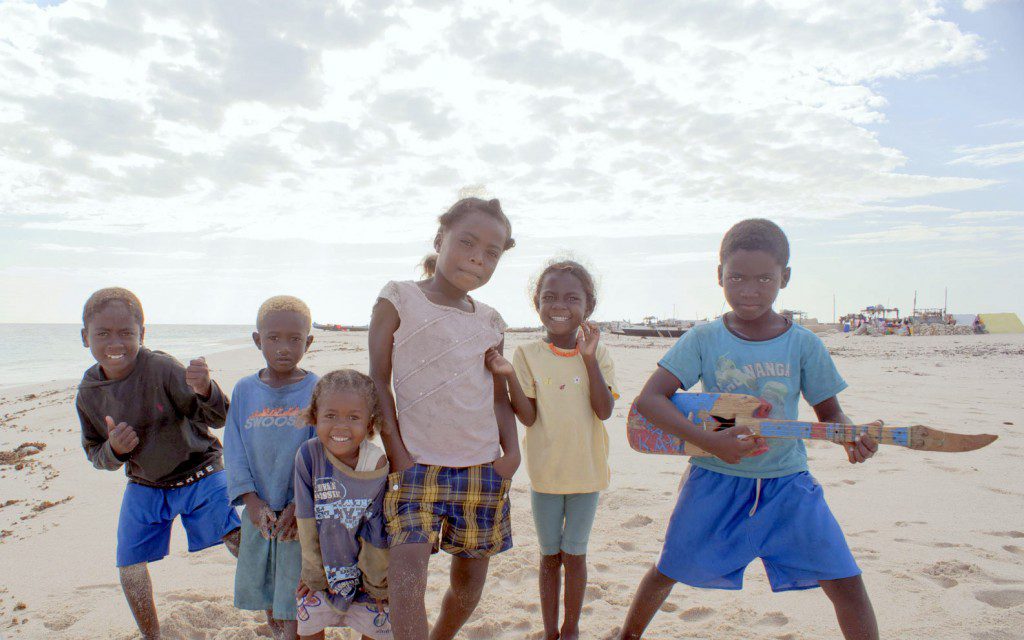By Tanguy Nicolas, Blue Ventures Maintirano project coordinator, Madagascar
I’ve had my feet back on the red island for nearly 6 weeks now, but have only really begun to settle in recently. My first time in Madagascar was back in 2007, when I lived in the central highlands and worked on an agricultural diversification programme. I am now back and based in the town of Maintirano, the capital city of the Melaky region, located on the west coast.
It has been a quick 1½ months! During a short journey to Blue Ventures’ operations in the south west to attend the annual BV conference, I started stock-piling references, training materials and operation manuals on seemingly everything related to BV, marine conservation, Madagascar, and numerous other topics. The pile of information kept on growing , in megabytes as well as in my head; especially with the annual conference which consisted of three intensive days of presentations, small workshops and discussions. The conference was useful as it gave me a quick, yet thorough, preview of all the work achieved so far by Blue Ventures staff, volunteers, and partner community organisations in Andavadoaka and Belo sur Mer. Most impressive to me was to hear that these achievements were accomplished without dozens of 4×4 vehicles or other expensive means, and with integration of population, health, livelihoods & conservation activities as a core principle.
It’s fascinating to witness how, for example, an activity that appears to be basic scientific measurements collected by fishing communities can boost their buy-in of the project and their feeling of ownership; or how a social marketing campaign (notably using messages painted on pirogue sails) will help change local behaviours to encourage enforcement of fishing gear restrictions. Many organisations talk about integrating activities from various sectors towards development, but it seems to me that few of them actually reach that goal as fluently as Blue Ventures does. It’s also very heartening to see projects that truly work towards local conservation and socio-economic development objectives.
But for me, this time in Andavadoaka was most importantly an opportunity to meet the warm-welcoming Blue Ventures’ team in a beautiful environment – light blue waters, sun, hot sand, and a game of beach volleyball is a good recipe for successful team building!
All too quickly, I was back on another road trip – this time back to the capital city to add some more luggage, complete some administrative work and pack it all up again for the long road to Maintirano. After literally days on the taxi-borosy (bush taxi), here I am, ready to start my new job. After some useful introductions to the local and regional authorities, we set up a morning of formal presentations; partially filmed and broadcasted on the regional TV channel – the beginning of fame!
The coastal landscape around Maintirano consists of a maze of mangroves, criss-crossed by channels flooded during high tide, with sand dunes emerging during low tide. The sea is reddish (Maintirano literally means “black water” in Malagasy), up to several hundred meters off the beach, full of sediment from the mangroves and the lands upstream. The famous Barren Isles, located between 15 and 60 km to the west/south west of Maintirano. Surrounded with coral reefs, these isles are used very much by Vezo fishers; a good proportion arriving by sailing pirogue from as far away as Toliara (some 500km away in the South) attracted by this biologically-productive archipelago.
A feasibility study conducted by Blue Ventures last year found that these coral reefs are among the healthiest in Madagascar, sheltering a rich variety of marine fauna; attracting several sea turtle species to nest, some rare bird species, sharks, and also whales in the austral winter season. This high biodiversity is still relatively preserved compared to what it’s like more to the South, but also becoming increasingly threatened. The high price of sea cucumbers and shark fins on international markets has created a gold rush for national and foreign collectors as well as fishers from as far as 600 km away. Phosphate deposits, the result of bird guano piled on the islands over the centuries, is also subject to mining interests – something that rarely occurs without disturbing fragile equilibrium. Traditional fishers, who also have their own economic balance to find within, are in need of the marine resources for their livelihoods, as the region currently does not have many job opportunities to offer.
So it is quite a big challenge: to support local fishers to develop a resource management system with local authorities as partners, whose own resources are also limited (especially because of the 2009 political transition). Nevertheless, although I only have a small idea about the “how”, everything I have seen and learnt from the work and achievements of Blue Ventures, makes me feel confident that the job is possible.


